
Index
Applications & Benefits of GAO’s RFID, BLE, IoT & Drones for Oilseed and Grain Farming
GAO’s Assists Clients with Standards, Mandates & Regulations of Oilseed and Grain Farming
GAO Software Provides Easy Integration with API
Case Studies of RFID Applications
Overview
Oilseed and grain farming involves the cultivation of crops primarily used for their oil and grain production. This industry encompasses a wide range of crops, including soybeans, canola, sunflower, corn, wheat, rice, and others. Oilseed crops, such as soybeans and canola, are grown primarily for their oil content, which is extracted and used for various purposes, including cooking oil, biodiesel production, and industrial applications.
GAO’s RFID, BLE, IoT, and drone technologies have helped its customers in oilseed and grain farming to improve their work processes, their operations and productivity by better management of their staff, materials and operational equipment such as tractors, seed drills, combine harvesters, grain carts, grain dryers, grain elevators, sprayers, tillage equipment, precision farming equipment, grain trucks and bale handlers.
Ranked as a top 10 global RFID supplier and based in New York City and Toronto, GAO RFID Inc offers a wide choice of RFID (radio frequency identification) readers and tags at ultra-high frequency (UHF), high frequency (HF, including NFC) and low frequency (LF), BLE (Low Energy Bluetooth) gateways and beacons, and various RFID and BLE systems such as people tracking, asset tracking, access control, parking control, fleet management, WIP (work in progress), traceability. Such RFID and BLE products and systems, together with its IoT and drone technologies, have been widely used in oilseed and grain farming.
Applications & Benefits of GAO’s RFID, BLE, IoT & Drones for Oilseed and Grain Farming
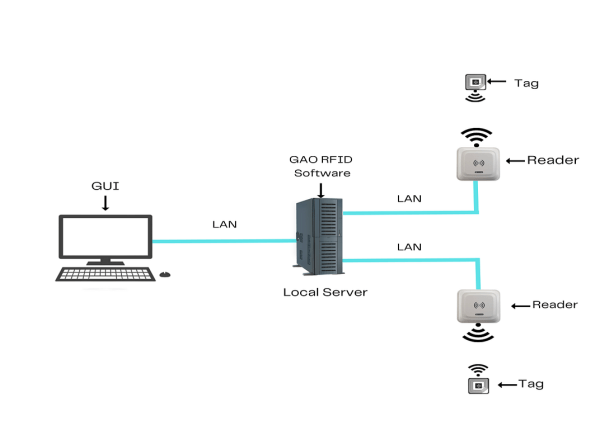
To satisfy its customers, GAO’s RFID or RFID Systems for oilseed and grain farming are offered in 2 versions. One version is that its software is running on a local server, and another version is that its software runs in the cloud. The above illustrates GAO system for oilseed and grain farming with its software running on a local server.
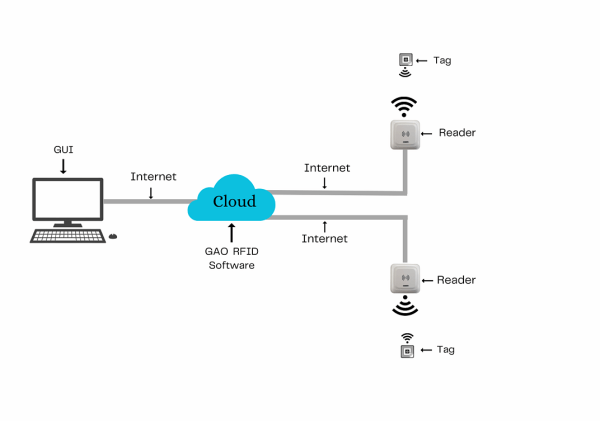
The above illustrates GAO system for oilseed and grain farming with its software running in cloud.
GAO’s RFID technologies bring the many benefits to oilseed and grain farming:
- Enhanced Inventory Management: GAO’s RFID technology enables efficient tracking and management of inventory. It can provide real-time information on the location and quantity of oilseeds and grains, allowing farmers to optimize storage, reduce losses, and streamline logistics.
- Improved Traceability: GAO’s RFID tags can be used to uniquely identify and track individual batches or lots of oilseeds and grains throughout the supply chain. This enables better traceability and transparency, making it easier to identify the origin, quality, and handling of the products, thus enhancing food safety and meeting regulatory requirements.
- Accurate Yield Monitoring: GAO’s RFID tags on harvesting equipment and bins can automatically record and transmit data on the amount of harvested crops. This allows for precise yield monitoring, which is crucial for farm management, production planning, and forecasting.
- Efficient Supply Chain Management: GAO’s RFID technology can facilitate smoother and more efficient supply chain operations. By automating data collection and providing real-time visibility, it helps optimize logistics, minimize delays, and improve overall supply chain coordination.
GAO’s BLE technologies offer longer reading range and particularly attractive for applications with larger work spaces within oilseed and grain farming:
- Data Integration and Analysis: GAO’s BLE technology can integrate with other data systems, allowing for comprehensive data analysis. By combining BLE-generated data with other sources, farmers can gain valuable insights, identify trends, and make informed decisions regarding crop management, storage, and logistics.
- Reduced Costs: Implementing GAO’s BLE technology can lead to cost savings in various aspects of oilseed and grain farming. For instance, by optimizing irrigation and fertilizer usage through data-driven decisions, farmers can reduce input costs. Additionally, automated data collection and inventory management can save time and resources.
- Automated Data Collection: GAO’s BLE sensors and devices can automatically collect data on various parameters, such as soil moisture levels, crop growth, or machinery performance. This eliminates the need for manual data collection, reduces human error, and provides farmers with accurate and timely information for decision-making.
- Precision Farming: By using GAO’s BLE-enabled sensors and devices, farmers can implement precision farming techniques. This includes targeted application of fertilizers, pesticides, and irrigation based on real-time data, optimizing resource usage, and improving crop yield and quality.
GAO’s RFID and drone technologies are often combined and such solutions offer the following benefits to oilseed and grain farming:
- Enhanced Crop Monitoring: Drones equipped with cameras and sensors can conduct aerial surveys of oilseed and grain fields. By combining GAO’s RFID tags on crops, farmers can precisely track the growth, health, and development of individual plants or crop areas.
- Efficient Inventory Management: Drones equipped with GAO’s RFID scanners can fly over crops or storage areas, quickly identifying and recording the tagged products. This streamlines the inventory counting process, reduces human error, and provides accurate and up-to-date stock information.
- Improved Crop Yield Estimation: Drones equipped with GAO’s RFID and remote sensing technologies can capture detailed field data, including crop density, height, and health. By analyzing this data, farmers can estimate crop yields more accurately.
- Precise Application of Inputs: GAO’s RFID-enabled drones can work in conjunction with precision agriculture techniques. By using GAO’s RFID tags on individual plants or sections of fields, drones can precisely target the application of fertilizers, pesticides, or irrigation.
Here are benefits of GAO’s IoT technologies to oilseed and grain farming:
- Data-Driven Decision Making: GAO’s IoT technology provides farmers with a wealth of data for analysis and decision-making. By integrating GAO’s IoT-generated data with other relevant data sources, farmers can gain comprehensive insights into their farming operations.
- Energy Efficiency: GAO’s IoT devices can optimize energy usage on farms. For example, by monitoring energy consumption of equipment and facilities, farmers can identify energy-saving opportunities and implement energy management strategies, reducing costs and environmental impact.
- Predictive Analytics: GAO’s IoT devices generate vast amounts of data that can be analyzed using advanced analytics techniques. By analyzing historical and real-time data, farmers can gain insights and make data-driven predictions.
- Precision Farming: GAO’s IoT devices, such as sensors and actuators, can collect real-time data on soil moisture, temperature, humidity, and other environmental conditions. This information enables farmers to implement precision farming techniques, optimizing irrigation, fertilization, and pest control for improved crop yield and resource efficiency.
GAO’s Assists Clients with Standards, Mandates & Regulations of Oilseed and Grain Farming
GAO RFID Inc. has developed its products and systems in compliance with industry standards and mandates. GAO has assisted our customers in oilseed and grain farming to deploy RFID, BLE, IoT and drone systems and to ensure such deployments complying with applicable industry standards, U.S. government regulations and Canadian government regulations such as:
RFID, BLE, IoT, & Drone Standards & Mandates
- Generic Attribute Profile (GATT): GATT is a BLE protocol that defines the way data is organized and exchanged between Bluetooth devices. It enables the creation of custom profiles and services for specific applications, allowing for interoperability and standardized communication
- MQTT (Message Queuing Telemetry Transport): MQTT is a lightweight messaging protocol designed for efficient communication between IoT devices and servers. It is widely used for data transmission in agriculture and allows for real-time monitoring and control of oilseed and grain farming operations.
- CoAP (Constrained Application Protocol): CoAP is a protocol designed for resource-constrained devices in IoT applications. It enables efficient communication between devices with limited processing power and bandwidth. CoAP is commonly used for sensor data exchange and control in oilseed and grain farming.
- ASTM F38: ASTM F38 is a standard specification for the design and construction of unmanned aircraft systems. It covers a range of aspects including airworthiness, performance, safety, and materials. This standard provides guidelines for drone manufacturers and users.
- FAA Part 107: In the United States, the Federal Aviation Administration (FAA) has established Part 107 regulations for commercial drone operations. These regulations outline requirements for pilot certification, operational limitations, and safety considerations. Compliance with FAA Part 107 is essential for operating drones in a commercial capacity, including for agricultural purposes.
- LoRaWAN (Long Range Wide Area Network): LoRaWAN is a low-power, wide-area network protocol designed for long-range communication between IoT devices. It enables long-range connectivity and efficient data transmission, making it suitable for applications such as crop monitoring, asset tracking, and environmental sensing in oilseed and grain farming.
- OMA LWM2M (Open Mobile Alliance Lightweight M2M): LWM2M is a protocol designed for device management and communication in IoT applications. It provides a standardized framework for managing devices, firmware updates, and data reporting. LWM2M can be used for managing IoT devices and sensors deployed in oilseed and grain farming operations.
US Government Regulations
- Environmental Regulations: The Environmental Protection Agency (EPA) regulates the use of pesticides, herbicides, and other agricultural chemicals to ensure their safe and environmentally responsible usage.
- Food Safety Regulations: The Food and Drug Administration (FDA) and the U.S. Department of Agriculture (USDA) have regulations and guidelines related to the safety and quality of food products.
- Agricultural Marketing and Grading Standards: The USDA sets standards and grading criteria for various agricultural commodities, including oilseeds and grains.
Canadian Government Regulations
- Plant Protection and Pest Control: The Canadian Food Inspection Agency (CFIA) is responsible for regulations related to plant health and pest control.
- Food Safety Regulations: Health Canada and the Canadian Food Inspection Agency (CFIA) regulate the safety and quality of food products, including those derived from oilseeds and grains.
- Grain Grading and Quality Standards: The Canadian Grain Commission (CGC) is responsible for the regulation and inspection of grain quality in Canada.
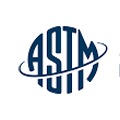
American Society for Testing and Materials International Medicine
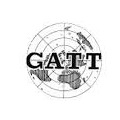
General Agreement on Tariffs and Trade
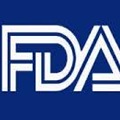
Food and Drug Administration Regulations

Environmental Protection Agency Regulations

Constrained Application Protocol

Long Range Wide Area Network

Federal Aviation Administration
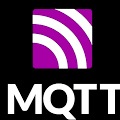
Message Queuing Telemetry Transport
GAO Software Provides Easy Integration with API
GAO’s RFID and BLE software offers a free trial for both the server-based and cloud versions, and offers an API to the important systems in oilseed and grain farming such as:
Personnel Management:
- Employee scheduling and shift management: Efficiently assign work shifts to farm employees.
- Training and development programs for farm workers: Provide ongoing training and skill development opportunities for agricultural workers.
- Performance management and evaluation: Monitor and assess the performance of farm employees.
- Payroll and compensation management: Streamline the management of payroll and employee compensation.
- Safety protocols and compliance management: Ensure adherence to safety protocols and regulatory compliance in farm operations.
Equipment Management:
- Maintenance and repair scheduling for farming equipment: Schedule and track maintenance and repairs for farming equipment.
- Equipment tracking and utilization monitoring: Monitor the location and usage of farm equipment.
- Inventory management of spare parts and tools: Manage inventory levels and availability of spare parts and tools for equipment maintenance.
- Fuel consumption tracking: Monitor and track fuel consumption for farming equipment.
- Equipment calibration and certification management: Keep track of equipment calibration schedules and certifications.
Access Control:
- Secure access to restricted areas such as storage facilities and processing plants: Control and monitor access to sensitive areas on the farm.
- Monitoring and logging of personnel entry and exit: Keep records of personnel entering and exiting the farm premises.
- Visitor management and identification: Manage and track visitors’ access to the farm.
- Integration with employee identification systems (RFID cards, biometrics, etc.): Integrate access control systems with employee identification methods.
Warehouse Management:
- Inventory management of harvested crops: Manage the inventory of harvested oilseeds and grains.
- Quality control and grading of oilseeds and grains: Monitor and maintain quality standards for stored crops.
- Tracking and traceability of products from farm to warehouse: Track and trace the movement of products from the farm to the warehouse.
- Warehouse space optimization and storage planning: Optimize warehouse space utilization and plan storage arrangements.
- Order fulfillment and shipping management: Manage the fulfillment of orders and oversee the shipping process.
Supply Chain Management:
- Demand forecasting and production planning: Predict demand and plan production accordingly.
- Supplier management and procurement of farming inputs: Manage relationships with suppliers and procure necessary farming inputs.
- Transportation and logistics management for grain delivery: Coordinate transportation and logistics for delivering grains.
- Traceability and product labeling compliance: Ensure compliance with traceability and labeling requirements for agricultural products.
- Collaboration and communication with distributors, processors, and retailers: Foster collaboration and communication with partners in the supply chain.
Other Applications:
- Environmental monitoring for soil moisture, weather conditions, and crop health: Monitor and gather data on environmental factors affecting crop growth.
- Irrigation management and water resource optimization: Optimize water usage and manage irrigation systems efficiently.
- Pest and disease monitoring and management: Monitor pests and diseases and take appropriate management measures.
- Crop yield monitoring and analysis: Track and analyze crop yields for production evaluation.
GAO has enabled its customers to make use of some of leading software and cloud services in oilseed and grain farming. Below are some of popular software and cloud services in oilseed and grain farming.
- Oracle Cloud HCM: Cloud-based human capital management platform offering robust features for managing personnel and HR processes in the agriculture industry.
- SAP SuccessFactors: Cloud-based HR management system offering a range of modules to optimize personnel management processes, from recruitment to performance management.
- Honeywell Pro-Watch: Integrated security management system that includes access control features, allowing for centralized control and monitoring of access to different areas.
- Manhattan Associates Warehouse Management System (WMS): Scalable software solution that optimizes warehouse operations, including inventory control, order picking, and shipment management.
- JDA Warehouse Management: Warehouse management system that offers advanced capabilities for inventory management, labor optimization, and integration with transportation management systems.
- Amazon Web Services (AWS): Cloud services platform that provides scalable computing power, storage, and database solutions for data-intensive applications in the agriculture sector.
- IBM Cloud: Cloud computing platform that offers services for data management, AI, analytics, and blockchain solutions that can be applied to various aspects of the agriculture sector.
- Salesforce Agriculture Cloud: Cloud-based platform that offers a range of CRM (customer relationship management) and analytics tools specifically tailored for the agriculture industry.
- Farmobile: Cloud-based platform that enables real-time collection and analysis of farm data, allowing farmers to optimize field operations, monitor equipment, and make data-driven decisions.
- Agworld: Farm management software that offers features for crop planning, input management, field scouting, and financial tracking.
- Brivo: Cloud-based access control system that offers centralized management of access permissions, visitor management, and real-time monitoring of access events.
- Openpath: Mobile access control system that enables seamless entry to facilities using smartphones, with features like touchless access and advanced security protocols.

Oracle Cloud Human Capital Management

Systems Applications and Products in Data Processing SE
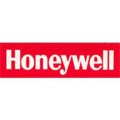
Honeywell international, Inc
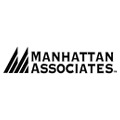
Manhattan Services Associates, Inc
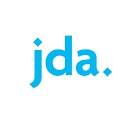
JDA Software Group, Inc

Amazon Web Services
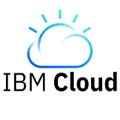
IBM Cloud Services

Salesforce Agriculture Cloud

Farmobile LLC

Agworld Pty Ltd

Brivo Systems LLC

Openpath Inc
GAO has worked with some of the leading technology companies in oilseed and grain farming in to provide integrated its RFID, BLE, IoT, and drone solutions to customers. Here are some of the technology leaders in oilseed and grain farming:
- John Deere: A leading manufacturer of agricultural machinery, providing innovative technology solutions for precision farming, equipment automation, and data-driven decision-making.
- Trimble Agriculture: Offers advanced GPS and guidance systems, precision agriculture technology, and data management solutions to optimize farming operations.
- AGCO Corporation: Provides a range of electronic technology solutions for the agriculture industry, including precision planting, harvesting, and data analytics for improved efficiency.
- Raven Industries: Specializes in precision agriculture technology, offering guidance systems, variable rate technology, and data management tools for enhanced productivity.
- DeLaval: Develops electronic technology solutions for dairy farming, including automated milking systems, milk quality control, and herd management software.
- Lindsay Corporation: Offers electronic irrigation systems, remote monitoring, and control solutions for efficient water management in crop production.
- Agworld: Provides comprehensive farm management software that includes crop planning, record-keeping, task management, and financial analysis tools.
- Granular: Offers farm management software for field operations, crop planning, financial management, and analytics.
- Oracle Agriculture: Provides cloud-based solutions for precision agriculture, farm management, supply chain management, and data analytics.
- Agrian: Provides a suite of agricultural software solutions for crop planning, spray tracking, compliance management, and precision farming.
- IBM Agriculture: Provides digital agriculture solutions, including IoT, AI, and analytics, for enhanced crop management, yield optimization, and sustainability.
- Descartes Systems Group: Specializes in logistics and supply chain management solutions, offering software for efficient transportation, trade compliance, and warehouse management.

John Deere

Trimble Inc
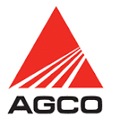
AGCO Corporation
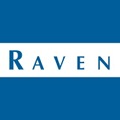
Raven Industries
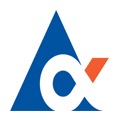
DeLaval Inc
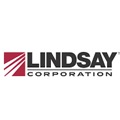
Lindsay Corporation
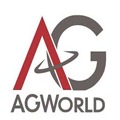
Agworld Pty Ltd

Granular Inc
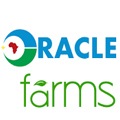
Oracle Agriculture
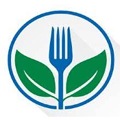
Agrian Inc
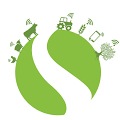
International Business Machines Corporation Farming

Descartes Systems Group
Case Studies of RFID Applications
Below are some RFID application cases in oilseed and grain farming.
ADM, a prominent agricultural processor and supplier in the USA, implemented an RFID-enabled inventory management system to revolutionize the accuracy and efficiency of tracking and managing grain stocks. Through the strategic application of RFID tags on storage containers and bins, ADM successfully automated the collection of crucial data during the entire grain lifecycle, encompassing receiving, storage, and shipping processes. This implementation effectively minimized errors while significantly enhancing traceability. By gaining real-time visibility into inventory levels, ADM optimized their supply chain operations, enabling streamlined logistics and improved decision-making. Consequently, this enhanced efficiency translated into improved customer service through the timely and efficient fulfillment of orders. ADM’s RFID-enabled inventory management system stands as a testament to their commitment to operational excellence and customer satisfaction.
Viterra, a renowned Canadian agribusiness company, embarked on a transformative journey by implementing an RFID-based grain traceability solution to elevate visibility, traceability, and quality assurance within their grain supply chain. By strategically applying RFID tags to grain bags or containers, Viterra successfully captured critical data at every stage of the supply chain journey, encompassing essential details regarding grain origin, processing, and storage conditions. Leveraging this comprehensive data, Viterra not only ensured adherence to rigorous quality standards but also streamlined traceability processes and bolstered transparency for their valued customers. The RFID-based traceability solution proved instrumental in enhancing product integrity, instilling confidence in customers, and facilitating efficient recalls, if ever required. Viterra’s commitment to cutting-edge technology and dedication to delivering exceptional quality exemplify their leadership in the industry.
Richardson International, a leading Canadian grain handling company, embraced the transformative potential of UHF (Ultra High Frequency) RFID technology to revolutionize their grain logistics operations. With strategic deployment of UHF RFID readers at crucial checkpoints, they achieved remarkable improvements in the accuracy and efficiency of tracking grain shipments. The implementation significantly minimized errors, streamlined supply chain processes, and enhanced overall operational efficiency. Real-time data capture and seamless information flow empowered Richardson International to make informed decisions swiftly, optimize resource allocation, and ensure timely delivery of grain to customers. By leveraging UHF RFID technology, Richardson International solidified its position as an industry leader committed to leveraging innovative solutions for superior grain logistics management.
Farmers Cooperative, a renowned grain cooperative in the USA, embraced the power of UHF (Ultra High Frequency) RFID technology to revolutionize grain quality management. Through the strategic attachment of UHF RFID tags to grain samples, they successfully automated the collection of crucial quality data, eliminating manual processes and reducing human errors. This streamlined approach expedited the testing and analysis process, empowering farmers to access accurate and real-time quality information. Armed with this data, farmers could make informed decisions regarding grain storage and sales, ensuring optimal product quality and maximizing profitability. The UHF RFID technology implementation by Farmers Cooperative enhanced efficiency, reduced costs, and elevated overall quality management practices, reaffirming their commitment to delivering exceptional grain products to the market.
Many applications of RFID by GAO can be found here
GAO RFID Systems & Hardware for Oilseed and Grain Farming
GAO RFID Inc. offers the largest selection of BLE gateways, BLE beacons, RFID readers, tags, antenna, printers, and integrated RFID systems for various industries, including oilseed and grain farming
BLE (Bluetooth Low Energy)
GAO offers advanced BLE gateways
as well as versatile beacons with functions such as temperature, humidity, vibration, and panic button
GAO’s BLE technology is suitable for many industries, including oilseed and grain farming.
UHF (Ultra High Frequency) RFID
GAO offers the largest selection of UHF RFID readers for various industries, including oilseed and grain farming
GAO RFID offers the widest choice of UHF RFID tags, labels, badges, and wristbands for various industries, including oilseed and grain farming.
GAO RFID offers the widest choice of UHF RFID tags, labels, badges, and wristbands for various industries, including oilseed and grain farming
and an array of antennas to address different applications:
HF (High Frequency), NFC (Near Field Communications), and LF (Low Frequency) RFID
GAO offers the largest selection of HF, NFC, and LF RFID readers for various industries, including oilseed and grain farming
- High Frequency 13.56 MHz Passive RFID Readers
- Low Frequency 134 kHz Passive RFID Readers
- Low Frequency 125 kHz Passive RFID Readers
HF, NFC, and LF RFID tags, labels, badges, and wristbands for various industries, including oilseed and grain farming
and antennas
GAO also offers RFID printers
Digital I/O adapters:
and relay controllers:
For embedded applications, GAO offers UHF, HF, and LF RFID reader modules:
The RFID systems by GAO are highly popular for clients in oilseed and grain farming
Assets that can be effectively tracked using GAO’s technologies include
- Combine Harvester: A large agricultural machine used for harvesting crops such as grains, capable of combining reaping, threshing, and winnowing operations into a single process.
- Grain Dryer: A device used to remove moisture from freshly harvested grains, ensuring their optimal storage and preventing spoilage.
- Grain Storage Silos: All cylindrical structures designed to store large quantities of grain, providing protection against environmental factors and facilitating efficient grain management.
- Seed Drill: An agricultural implement used for sowing seeds in a controlled manner, allowing precise placement and spacing of seeds for optimal germination and crop growth.
- Grain Cart: A specialized trailer or wagon used for transporting harvested grains from the field to storage or processing facilities, pulled by a tractor.
- Grain Elevator: A facility equipped with vertical conveyor systems for lifting and distributing grains, facilitating the efficient transfer of grains between different storage levels.
- Grain Cleaner: Equipment used to remove impurities, debris, and foreign materials from grains, ensuring their quality and marketability.
- Grain Bagging Machine: Machinery designed to efficiently bag and seal grains in large, durable bags, allowing for easy storage, transport, and handling.
- Grain Auger: An agricultural tool used for conveying grains or other materials through a tube using a rotating helical screw, enabling efficient transfer and loading.
- Grain Scale: Precision measuring equipment used to determine the weight or mass of grains, ensuring accurate measurement for trading, processing, or quality control purposes.
People or workers tracking system
Personnel or people access control system
Parking or vehicle control system
GAO Has Served Oilseed and Grain Farming Extensively
GAO’s products and technologies have helped its customers in oilseed and grain farming Industry to achieve success in precision agriculture, digital farming, internet of things, artificial intelligence, big data analytics, remote sensing, smart farming, data-driven decision-making, sustainable agriculture, farm management software and crop monitoring
GAO RFID Inc. has served many customers in oilseed and grain farming, including its various divisions such as
- Oilseed Farming: Focuses specifically on the cultivation and production of oilseed crops such as soybeans, canola, sunflowers, and flaxseed.
- Grain Farming: Involves the cultivation and production of cereal grains such as wheat, corn, barley, oats, and rice.
- Seed Production: Specialized division dedicated to producing high-quality seeds for oilseeds and grain crops.
- Grain Storage and Handling: Involves the infrastructure and operations related to the storage, transportation, and handling of harvested grains.
- Grain Processing and Milling: Deals with the processing of harvested grains into value-added products such as flour, oil, feed, and other grain-based products.
- Agricultural Equipment and Machinery: Pertains to the manufacturing, sales, and maintenance of agricultural machinery and equipment used in oilseed and grain farming.
- Agricultural Inputs: Includes the production and distribution of agricultural inputs like fertilizers, pesticides, herbicides, and seeds.
- Agricultural Services and Consulting: Provides specialized services and consulting for oilseed and grain farmers, including agronomy advice, crop consulting, and agricultural technology support.
Here are some of the leading companies in oilseed and grain farming industry
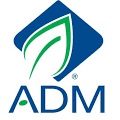
Archer Daniels Midland Company

Cargill, Incorporated

Bunge Limited
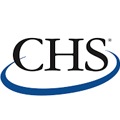
CHS Inc.

Land O’Lakes, Inc.
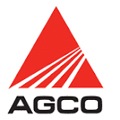
AGCO Corporation
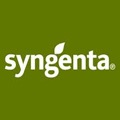
Syngenta AG
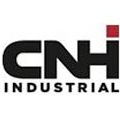
CNH Industrial N.Vv
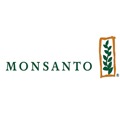
Monsanto Company
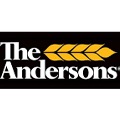
The Andersons, Inc
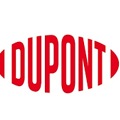
DuPont de Nemours, Inc.
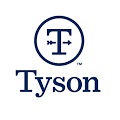
Tyson Foods, Inc.

Bunge North America Inc.

The Scoular Company
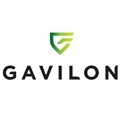
Gavilon Group LLC

Lansing Trade Group LLC

Perdue Farms Inc.
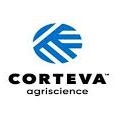
Corteva Agriscience, Inc.

Viterra Inc.

Richardson International Limited
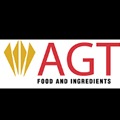
AGT Food and Ingredients Inc
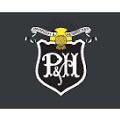
Parrish & Heimbecker, Limited
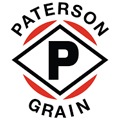
Paterson Grain Inc.
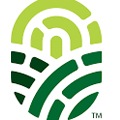
Sollio Agriculture
